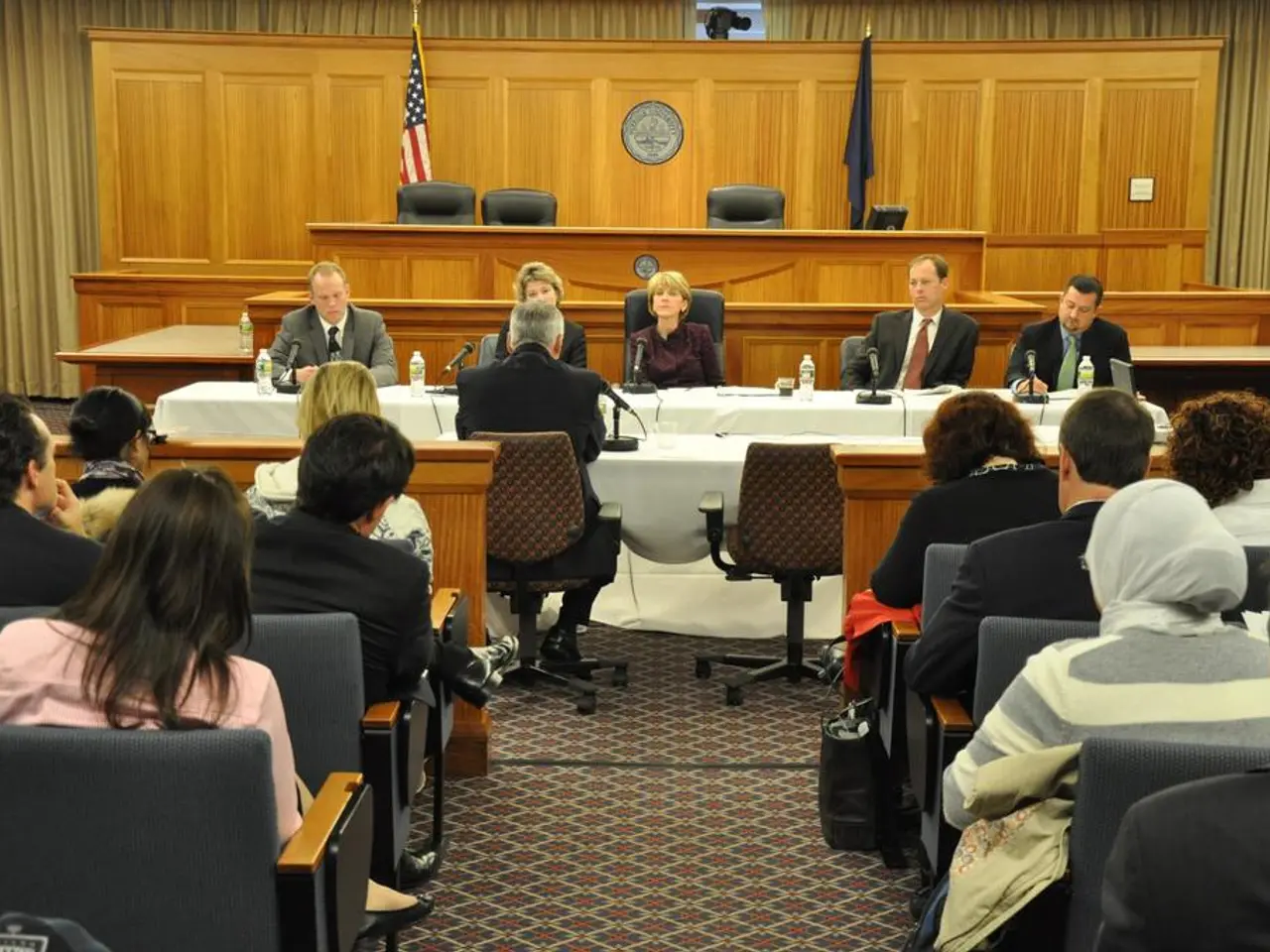European Union Council Assembly
The Council of the European Union, a key decision-making body in the European Union, is a single legal entity that meets in various sectoral formations to shape European policy. In the second half of 2020, Germany, Portugal, and Slovenia worked closely together as a 'trio' during the Council presidency.
The Council presidency rotates every six months among the member states according to a predetermined system. In the case of the second half of 2020, Germany took the helm. The presidency of the Council meetings is held by the relevant minister of the member state that currently holds the Council presidency on a rotating basis.
The Council's tasks include the concrete design of European policy and political coordination by sectoral ministers. The work of the Council is prepared by the Committee of Permanent Representatives of the Member States (Coreper), which meets in two formations (Coreper I and II), as well as by a large number of Council committees and working groups.
The Council of Foreign Relations, however, does not affect the composition of the Council presidency. Instead, the High Representative of the Union for Foreign and Security Policy holds the permanent presidency. As of 2019, Josep Borrell holds this position.
The Council is responsible for European legislation, along with the European Parliament. The Secretariat of the Council supports its work administratively and organizationally.
Each time, three member states that hold the Council presidencies in direct succession work particularly closely together as a 'trio'. This collaborative approach ensures a smooth transition and continuity in the Council's work.
For more information on the Council of the European Union, visit their website at www.consilium.europa.eu/de/. The Council's tasks require a qualified majority for decision adoption, typically meeting the 'double majority' requirement.
The Council is divided into ten formations, including General Affairs, Foreign Affairs, Economic and Financial Affairs, Justice and Home Affairs, Employment, Social Policy, Health, and Consumer Protection, Competitiveness, Transport, Telecommunications, and Energy, Agriculture and Fisheries, Environment, Education, Youth, Culture, and Sport.
Read also:
- United States tariffs pose a threat to India, necessitating the recruitment of adept negotiators or strategists, similar to those who had influenced Trump's decisions.
- Weekly happenings in the German Federal Parliament (Bundestag)
- Southwest region's most popular posts, accompanied by an inquiry:
- Discussion between Putin and Trump in Alaska could potentially overshadow Ukraine's concerns






